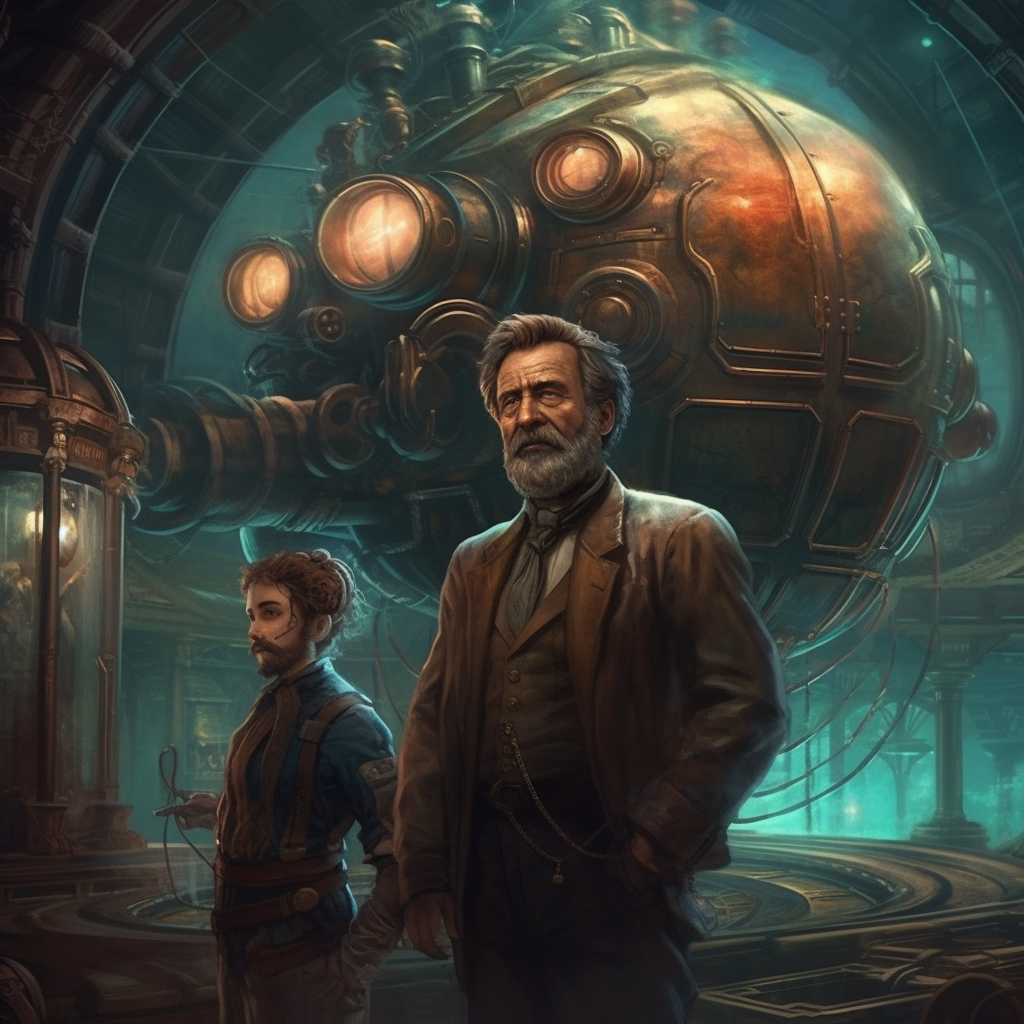🚀 AI Revolution: Literary Industry's Game-Changer or Catastrophe? 📚

The literary world has been a bastion of creativity, storytelling, and expression for centuries. But now, the winds of change are blowing as artificial intelligence (AI) is disrupting the literary industry like never before. Some hail it as a game-changer, while others fear its impact on traditional publishers and authors. This article will explore the pros and cons of AI in the literary industry, and how publishers can fight the disruption.

🎯 The AI Takeover: Pros and Cons for the Literary Industry 🏹
AI has been making inroads in various industries, and the literary world is no exception. With tools such as OpenAI's GPT-series and other text generation models, the capabilities of AI-driven writing have grown exponentially. Let's dive into the pros and cons of AI in the literary world.

📈 Pros:
🌐 Democratizing Writing: With AI-powered tools, aspiring writers can access writing assistance, enabling them to overcome writer's block and enhance their creativity. This democratization of writing resources opens the doors for more people to explore their literary aspirations.
💡 Enhanced Creativity: AI can help authors generate ideas, outline storylines, and even create entire plots. This can free up authors to focus on more nuanced aspects of their craft, such as character development and world-building.
🏃♂️ Speed: AI-driven tools can generate text rapidly, allowing authors to produce more content in less time. This can lead to a higher output of literary works and quicker turnaround times for publishers.
💰 Cost-Effectiveness: AI can help reduce costs for publishers by automating tasks such as proofreading and editing. This allows them to allocate resources more efficiently and possibly lower the barriers for new authors to enter the market.

📉 Cons:
🤖 Loss of Human Touch: Critics argue that AI-generated literature may lack the emotional depth and nuanced understanding of the human condition that is central to great literary works. The fear is that AI-driven literature will dilute the richness of human storytelling.
👨💼 Job Displacement: The rise of AI-generated content could lead to job losses in the publishing industry, as roles in editing, proofreading, and even writing become automated.
📚 Oversaturation of Content: As AI-generated content becomes more prevalent, the market may become oversaturated, making it harder for authors and publishers to stand out and find their audience.
🕵️♂️ Plagiarism and Ethics: AI-generated content raises questions about intellectual property and the potential for plagiarism, as AI models draw on vast amounts of existing text to generate new content. Establishing ethical guidelines and legal frameworks to address these issues is essential.

🥊 How Publishers Can Fight the AI Disruption 🛡️
While AI is undoubtedly causing disruption in the literary industry, publishers can still adapt and thrive in this changing landscape. Here are some strategies for publishers to consider:
🤝 Embrace Collaboration: Publishers can work with AI technology to enhance their offerings, rather than seeing it as a threat. By partnering with AI developers and embracing AI-driven tools, publishers can streamline their processes and offer authors unique, value-added services.
🎯 Focus on Quality: AI-generated content may struggle to replicate the emotional depth and nuance of human-authored literature. By focusing on producing high-quality content that resonates with readers, publishers can differentiate themselves in the market.
🌟 Nurture Talent: Publishers can invest in discovering and nurturing new literary talent, positioning themselves as curators and champions of human creativity. By actively seeking out and supporting exceptional authors, publishers can maintain their relevance and importance in the literary landscape.
🧩 Offer Bespoke Services: By providing tailored services to authors, such as personalized marketing strategies, workshops, and networking opportunities, publishers can build strong relationships with their clients and remain indispensable partners in their literary journeys.
📢 Be a Voice for Ethical AI: Publishers can take a stand on ethical AI use in the literary industry and help develop guidelines to ensure that AI-generated content respects intellectual property rights and maintains the integrity of human-authored literature.
🔬 Invest in Research and Development: To stay ahead of the curve, publishers must invest in understanding and developing AI technology. By actively participating in research and development, publishers can influence the direction of AI technology and ensure that it serves the best interests of the literary industry.
🌍 Foster Global Collaboration: The AI revolution is a global phenomenon. Publishers can create networks and forge alliances with industry partners worldwide, sharing knowledge and resources to navigate the AI-driven landscape together.
In conclusion, the disruption caused by AI in the literary industry cannot be ignored. While there are pros and cons to AI's growing presence, it is essential for publishers to adapt and find ways to thrive in this new environment. By embracing AI as a tool for enhancing creativity, focusing on quality and nurturing talent, and investing in research and development, publishers can continue to play a vital role in shaping the future of literature. 📚🤖🌟

